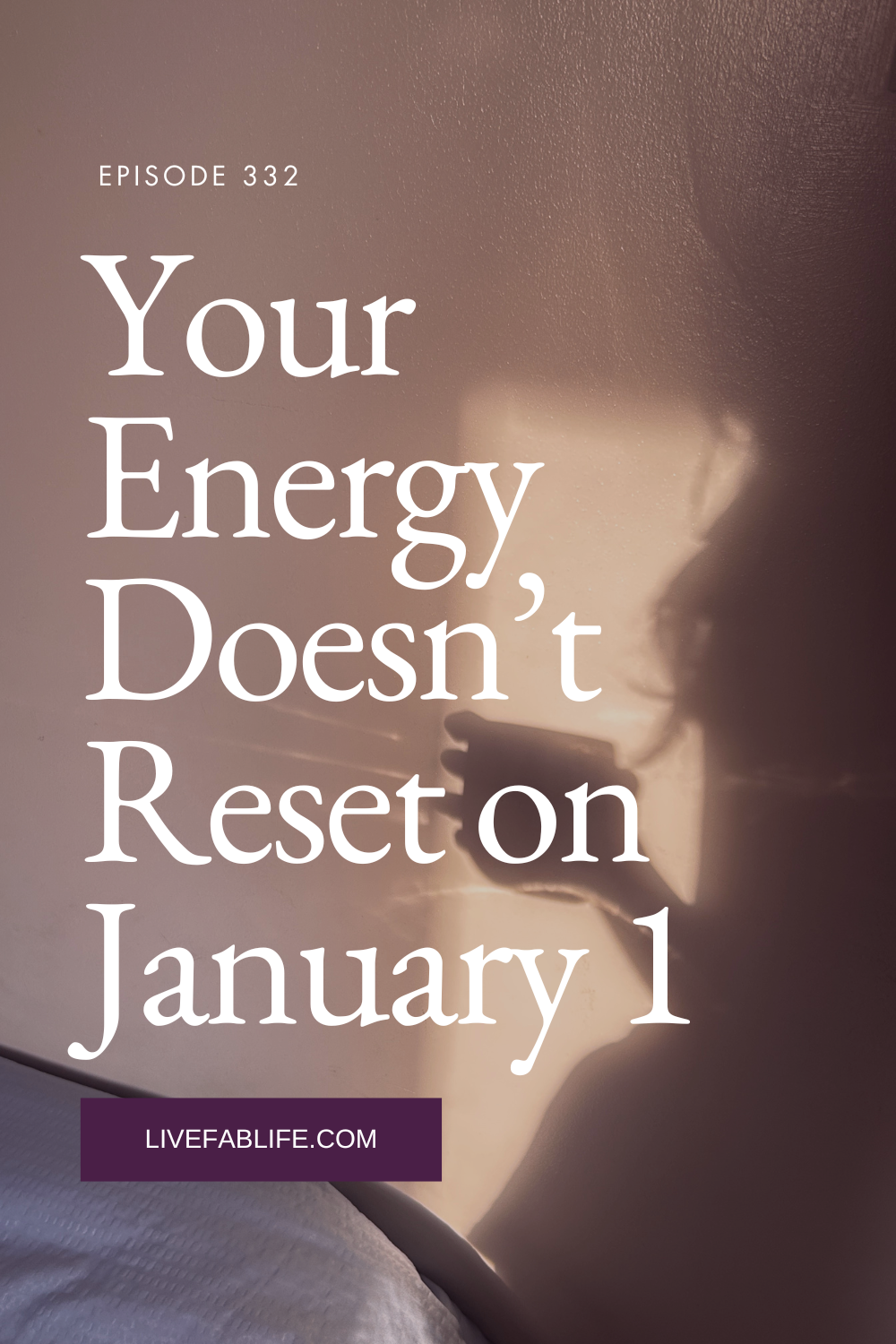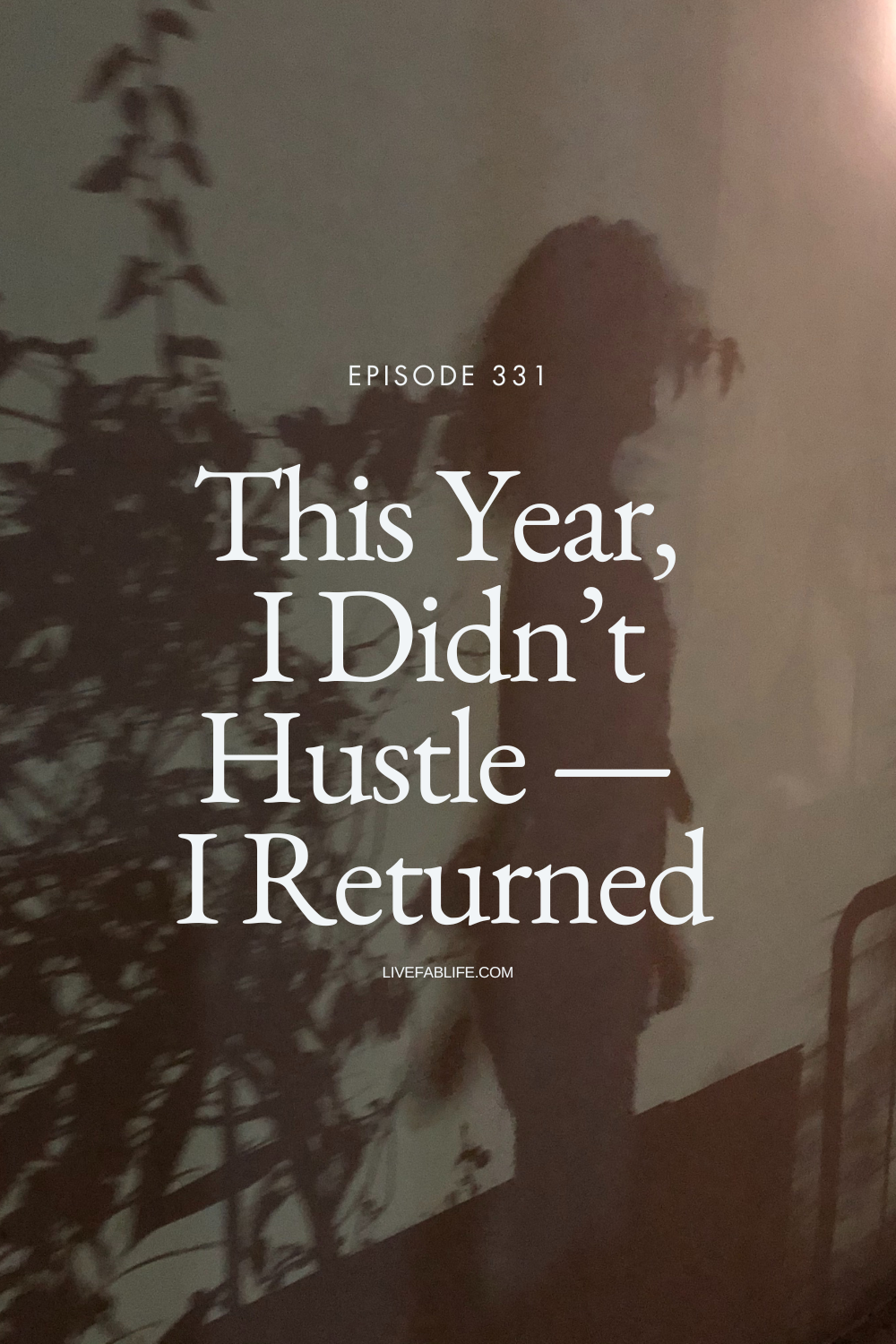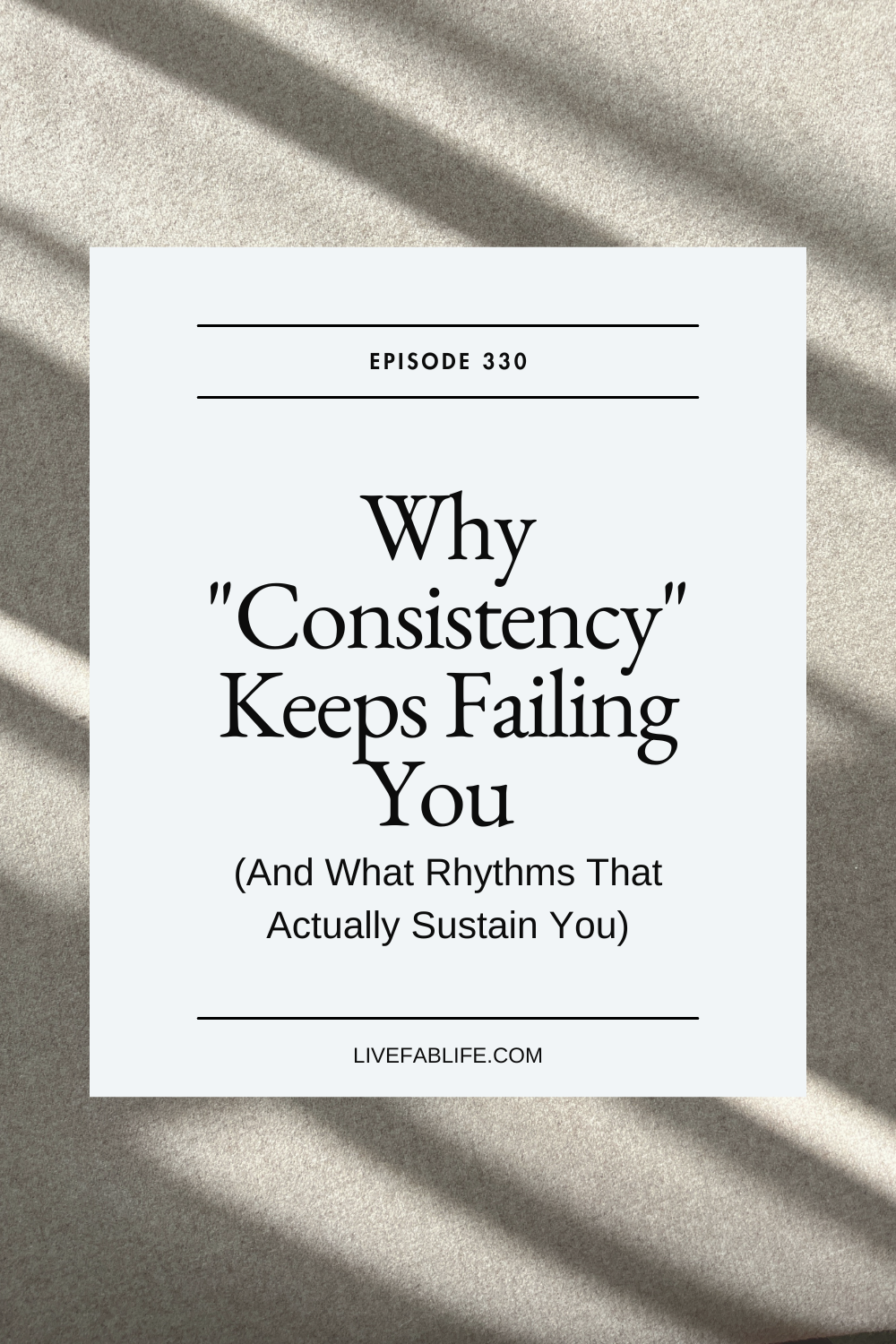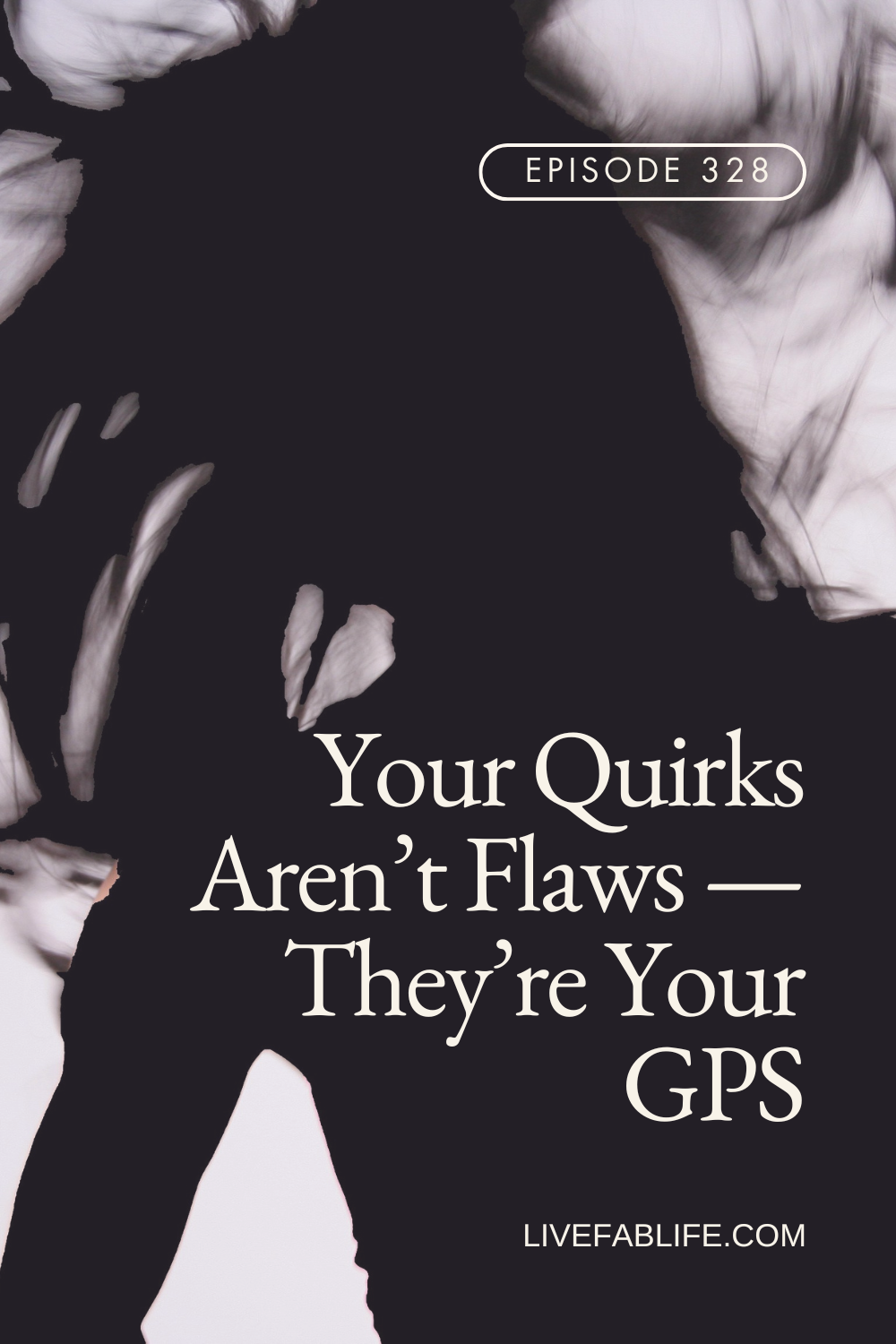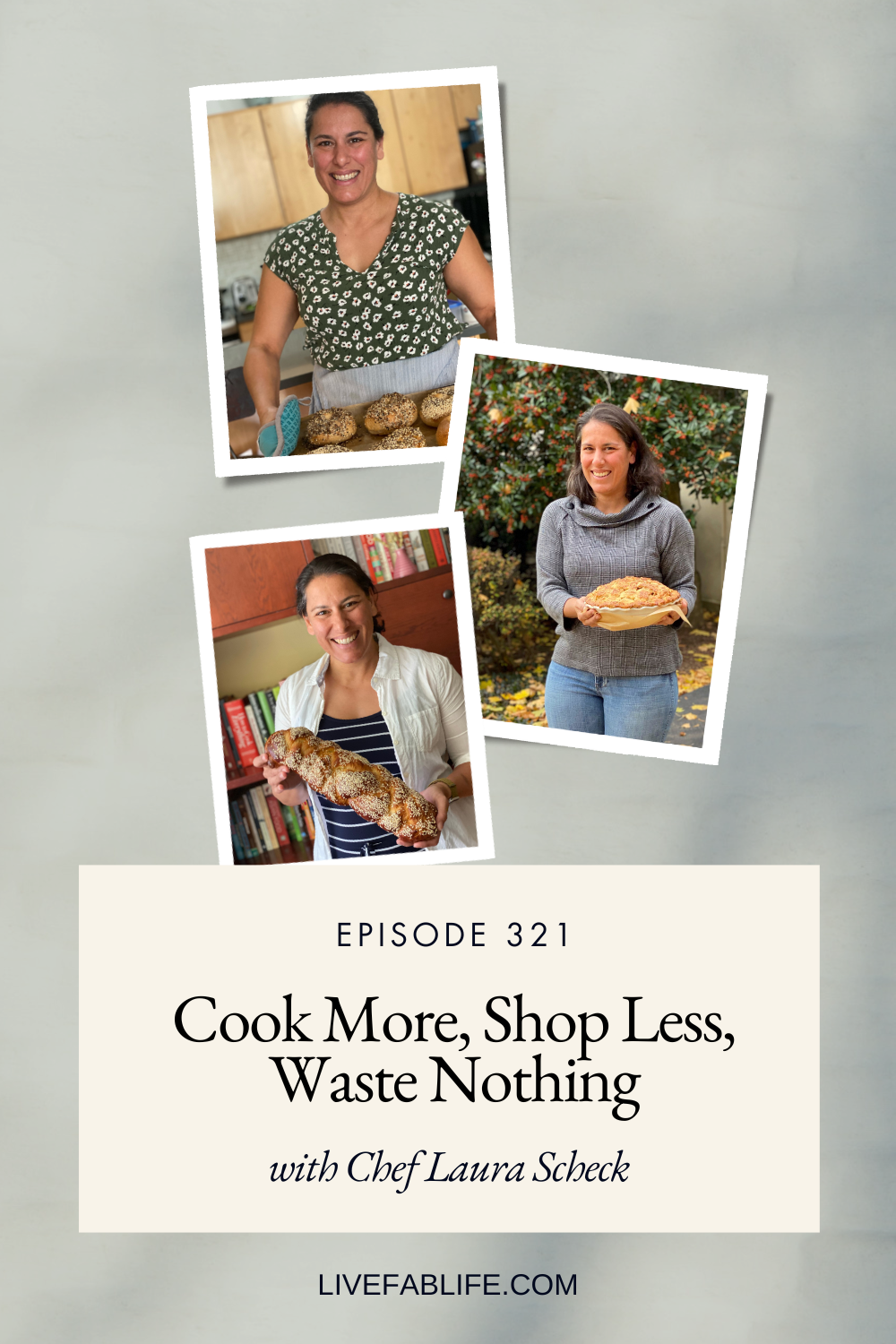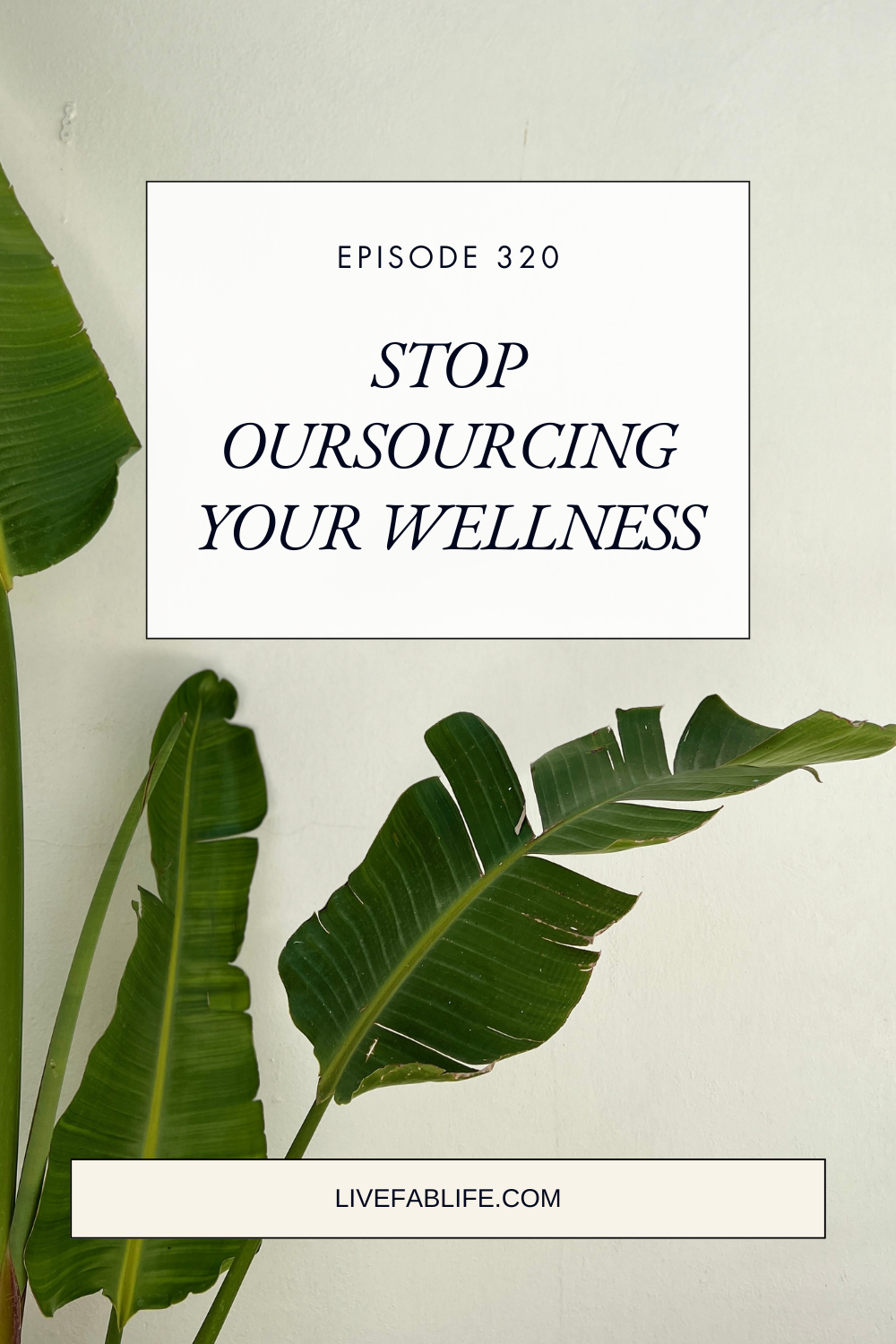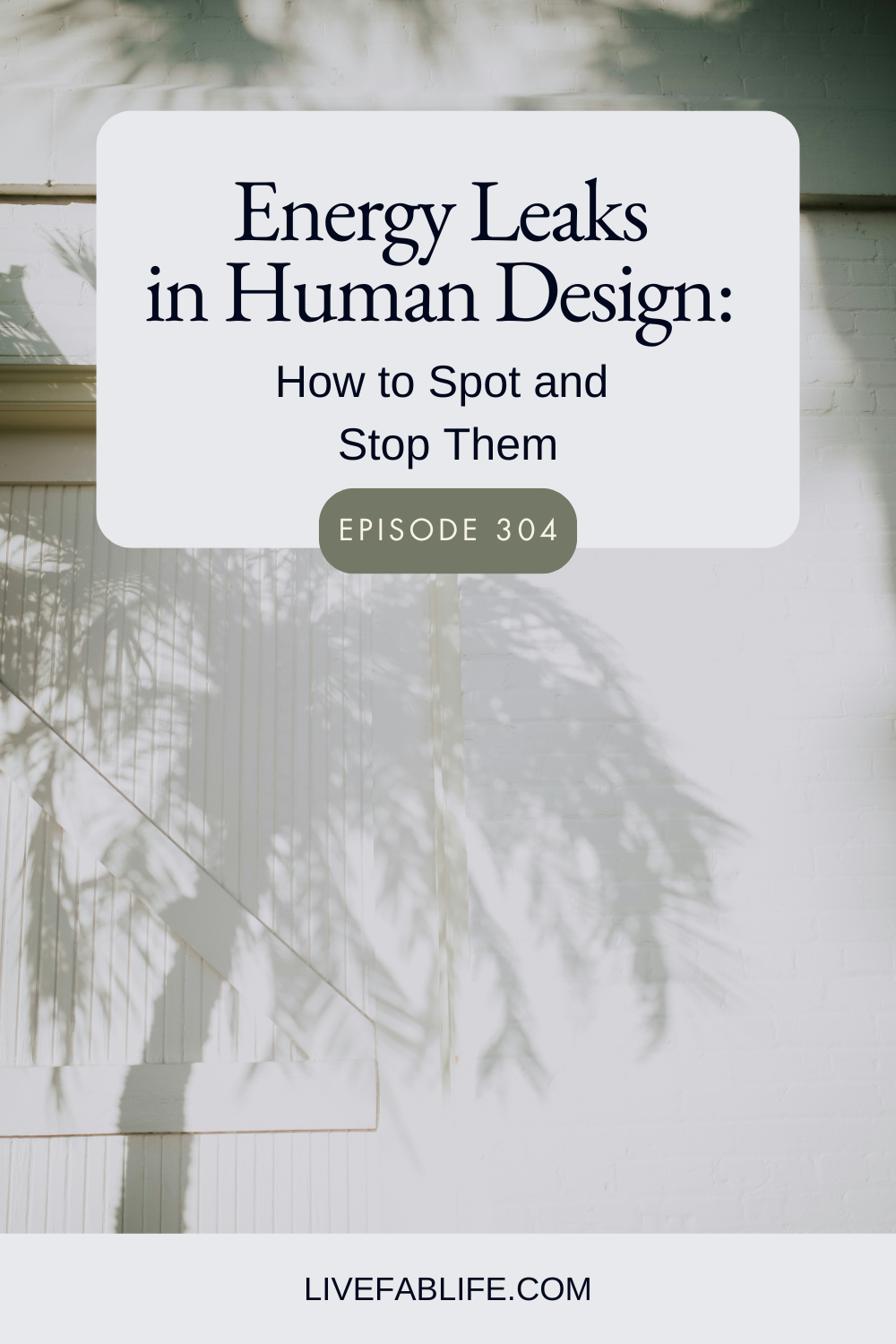Episode 170: The Stories We Don’t Talk About: An Asian American Experience with Julianne Chai
This show has always been a place to share real people’s stories around health and wellness, and our communities and social support systems are foundational to our vitality.
This month, being Asian Pacific Heritage Month, and I, being an Asian American, am dedicating this month’s episodes to the stories we don’t talk about, and sharing Asian Pacific Islander stories.
Because if we don’t know each other’s stories, how can we support our communities in ways that they need to be supported?
Joining me today is my friend Julianne Chai.
Julianne and I became friends over a decade ago through the Bay Area running and blogging community but we really bonded when we both became dog moms to our rescue pups.
Despite being friends for so many years, I never knew her immigrant story as a first-generation Korean American. So in this episode, Julianne joins me to share her story of immigrating to the United States at 10 years old, what the cultural acclimation was like, and how she assimilated to American culture while still retaining her native Korean culture.
As you listen to her story, think about your friends, regardless of their ethnic backgrounds, and ask yourself how well do you know their stories? If you don’t, ask them to share it with you, and let them be heard.
Listen to the Episode:
Connect with Julianne Chai:
Share the Episode:
“I’m so grateful that my parents immigrated to the United States because I don’t think I would’ve been smart enough to get to the top colleges. I don’t think I would have had the freedom, access to the different cultural and educational opportunities that we have in this country. The freedom to have traveled all over the world, the ability to be where I am, and to explore my career options. I think I’ve so much more freedom because we’re in this country.”
Read the Transcript...
Naomi Nakamura: Hello my friends, and welcome to The Live FAB Life Podcast. I'm your host, Naomi Nakamura and I'm really excited and very nervous to bring this month's episodes to you because they're a little bit different. And at first glance, they might seem to be off topic for me, but they're not. So hear me out here and this is about as vulnerable as I've been thus far on this topic. And I have to tell you, I am super nervous to even share this with you, but I feel this deep need to.
So it's almost a year ago after George Floyd's murder and the global response to it. I really struggled not because I didn't believe that racism exists. Trust me, I know that it does, but I didn't know where I fit in. I was confused because a couple of years ago, even though I am a non-white person, I had someone tell me that I was not a person of color and that I didn't have a place in the diversity and inclusion conversation.
And deep down, I knew this wasn't true, but it made me question myself and it questioned my identity that I had for my entire life. And I thought, "Well, if this is what other people think it might be true." In reality, it was just one person, but that's the impact that one person's word had on me. And I really questioned where did I fit in? Am I a person of color?
And I know 100% that Asian people are discriminated against, especially here in America. Wait, here's the thing. Racism doesn't always have to be violent. And I know that Asian people experience this every single day. But again, I questioned myself. Because this happens, are we a person of color? I know this happens, but does the world consider us people of color? And is this something that we even have a right to talk about or to share? What are we? How do we fit in?
And I really, really struggled with this and I didn't really have anyone to talk to about it. And it wasn't until I heard Helen Zia and she is an Asian American activist, and she came to my company, my employer, and she spoke at an All Hands Meeting that we had; a company wide meeting, and this was last June.
And she said that the way Asians are discriminated against is that we're invisible. And that simple statement hit the nail on the head for me and explained everything that I'd been feeling. And that really, I felt almost my entire life, but I never knew how to contextualize or express or even if I had the right to express it. And since then, since last June, I've observed, I observed everything. I've observed the invisibility on social media in real life and in media and in our society. And it has played out this way again and again, and again.
Now in March, when the murders of Korean women took place in Atlanta, the media finally paid attention, people were finally paying attention. But to Asian people, especially Asian-Americans, we weren't surprised because we knew that anti-Asian hate was taking place throughout the pandemic and really long before it. And like I said, hate doesn't need to be violence, but it does exist and it does happen every single day.
So if Asians are invisible, which I know that we are, how do we become un-invisible? How do we become seen? Well, after attending many lectures and many webinars over the past year that I really haven't spoken to anyone about, I've come to the conclusion and hearing what many activists and people have to say. And really the bottom line and the common denominator has always been, we share our stories. And as I've thought about this, I realized that I didn't even know the stories of many of my Asian friends. And if we don't know each other's stories, how do we expect other people to know them and to know us as people, so that we aren't invisible?
And so having this show, this podcast, where I've always tried to share real people's stories, if you guys have listened to episodes from a while back, I always talk about sharing real people's stories. And when it comes to their health and wellness, well, I realized that I can use this show to have people share their immigrant and their cultural stories, because those are critical aspects of our health and wellness, especially when it comes to taking a functional approach, because our communities and our social support systems are foundational to our vitality, and our culture is at the root of all of that.
So without knowing that May is Asian Pacific Heritage Month, I mean, I never heard of this before. Is it new? Who decided this? I don't know. But I had this thought and this plan in my head to episodes to telling Asian stories. And then I heard, "Oh, well, May is Asian Pacific Heritage Month." And I was like, "Oh, well, that works out well." So without knowing that that's what this month is about, I've invited a few Asian friends to join me over the next few episodes to show their stories. And then I'll end the month sharing my own story.
While I'm not an activist, I don't know exactly what I plan to do with this. I don't have any other plans for other than having this opportunity to have people share their stories. I don't know what I'm going to do after this as well. But I think that the women that I've invited to join me here this month, they have really super interesting stories that I loved so much hearing, and I think you will too.
So today, I am joined by my friend Julianne Chai. And as you will hear in the episode, I'm not even saying her last name right, but that's how it's assimilated to become. And that's how I'm always known to pronounce it.
So Julianne and I became friends through the Bay Area running and blogging community probably a little over a decade ago. But we really bonded when we both became dog moms to rescue pups, probably about six and seven years ago, respectively.
Now, if you were to see a photo of Julianne and I together, if you were to meet us in person and you didn't know anything about us, it would appear that we have so much in common and that we're so much alike. I mean, we're both Asian women. We're both project managers. And I like makeup. I sell makeup and beauty products, but Julianne's actually a professional makeup artist. And in fact, if you've ever visited my website or seen some of my branding photos on my Instagram, she did my makeup for those photos.
But unlike myself, I'm Yonsei, which means I'm a fourth generation American. Julianne is a first-generation Korean-American. And that means she was born in Seoul, Korea, and she immigrated to the United States as a child. So Julianne joins me today to share her immigrant story of what it was like coming over to the United States at 10 years old. So she was a child, but she wasn't that young. She was old enough to still have memories of living in South Korea. And she shares what that cultural acclimation was like, how she assimilated to American culture and, or what she does to still retain her native Korean culture.
Like I said, I've known Julianne for over a decade, and this was the first time I've heard this critical part of her story of her life. And so before we get to the show, as you listen to her story, I want you to be thinking about your own friends, whether they're Asian or not, and ask yourself, how well do you know them? How well do you know their stories, their origin stories? And if you don't, then I think it's time that we all took the time to have these meaningful conversations and find out more about each other and where we came from and what our life experiences have been like. And so with that, let's get to Julianne's story.
Hello, my friend. Welcome to the show.
Julianne Chai: Hi.
Naomi Nakamura: Thank you so much for coming on. We were having this discussion before I started recording that before I invited you to join me, I did not know that May was, what did we say it was? It's Asian Pacific Heritage Month?
Julianne Chai: Mm-hmm (affirmative). I think it's AAPI Heritage Month [crosstalk 00:09:26].
Naomi Nakamura: I didn't even know that was a thing, but apparently I'm like, is this new? Has it always been this way? I didn't even know.
Julianne Chai: How terrible is it I only know it from going to the Warriors game. I never knew it either. I mean, it's a thing.
Naomi Nakamura: But prior to us knowing this, given a lot of what's for most people, it's been going on recently, but you and I both know it's been going on for much, much longer, I've just really started thinking about now I have this podcast and I've always wanted to use this podcast as a way to share real people's stories. And who we are is so much a part of our health and wellness and I really feel like this is an opportunity that I can invite people from all different backgrounds and have their stories told.
And you and I, if someone were to look at a picture of us or see us together, we would look very similar, right? Two Asian-American girls. We're so different.
Julianne Chai: I know. We do look so alike and now that we have both blonde highlights. I mean, are you serious?
Naomi Nakamura: Our backgrounds could not be [crosstalk 00:10:28] more different. I'm Filipino-Japanese, you're Korean.
Julianne Chai: I'm first-generation Korean, yeah.
Naomi Nakamura: And I'm fourth generation, and I know nothing about Korean culture. I mean, I barely know a lot about Filipino-Japanese culture being fourth generation. And when I was thinking about it, I was like, you're first generation. I don't even know your immigration story. So, I mean, I would love to hear it.
Julianne Chai: Aww.
Naomi Nakamura: And for you listeners, this literally is the first time I'm hearing it. So how old were you when you came over?
Julianne Chai: No, I was 10. I was 10 years old back in 1984, so you could do the math. I mean, it was almost 40 years ago. My family immigrated here, thanks to my aunt and uncle who came here even before that, a decade before that. And they built a life here and when they were able to, they invited us. And it took us three or four years to get a visa to even immigrate to the United States [crosstalk 00:11:25] without their sponsorship.
Naomi Nakamura: I didn't know that you were 10 years old. So you have a lot of recognition, I would imagine, of growing up in Korea.
Julianne Chai: Oh, yeah.
Naomi Nakamura: So what was that like?
Julianne Chai: Well I went back. The first time I went back was when I was 19 or 20. I went back through educational abroad program and it was very different from what I remember from a ten-year-old I to an adult. And it was incredibly different because by then, I'd thoroughly become in my world, American. So I didn't look like them. I didn't talk like them. And I felt like I didn't fit in here or there. I felt like I was somewhere in limbo.
Naomi Nakamura: Interesting. So you came over at 10, but your family started the process probably when you were six or seven years old.
Julianne Chai: Mm-hmm (affirmative).
Naomi Nakamura: Did you speak English?
Julianne Chai: Nope. Nope. My first English was on the plane. My mom knew a little bit, so I asked her, "Mom, how do I ask for water?" I asked her in Korean and she told me, "May I have some water please?" And to me that was mind-blowingly difficult and nothing, no English. And because I'm the oldest of three girls and all of us, our number one goal was to assimilate as fast as possible, to learn English as fast as possible. And we tried so hard to the point where I think we lost a little bit of our Korean-ness and we might never get that back because we were so young. And so language we knew, was the key to get to fitting in.
So I mean, people ask me all the time, "Oh, you came here when you were 10? You have no accent?" And I'm like, "I have a little bit. I could hear it, I'm sure other people can too. But we tried really hard to not have any accent. Yeah.
Naomi Nakamura: So you came over at 10 years old, you didn't speak English. Did you come straight to the Bay Area?
Julianne Chai: Straight to San Jose, mm-hmm (affirmative).
Naomi Nakamura: Okay. And that's where you guys settled and that's [crosstalk 00:13:10].
Julianne Chai: Yeah. My parents are still there. My sister's in Santa Clara. I mean, I lived in Oakland for a long time. I mean, Bay Area is home.
Naomi Nakamura: First of all, did you have another name?
Julianne Chai: Yes. My Korean name is [inaudible 00:13:22] is my name and I hated it, but I did not like it. Folk didn't say it. They're like, "Is it this [inaudible 00:13:29]? And they didn't know that two syllables was one name. So often my middle syllable became my middle name. And then you could see my name is spelled C-H-A-I, which sounds like Chai, but it's actually Chai.
Naomi Nakamura: See, I wouldn't even know that.
Julianne Chai: And I go by Julianne Chai. I mean, it stuck. Part of me kind of likes it too, but I feel a little guilty because it's not how you really say it.
Naomi Nakamura: So when and how did you pick Julianne?
Julianne Chai: My goal was to have an American name as soon as I got here, I had wanted it-
Naomi Nakamura: So you had that goal before even coming here?
Julianne Chai: No. You know what? I had my aunts and uncles who were here before, were already here to help us get assimilated and help us become-
Naomi Nakamura: Americanized.
Julianne Chai: Yeah. So they had names for us and I got to pick one, luckily. So me and my best friend went through the list and I was like, "Julianne sounds so romantic." It was Pamela, Vanessa, or it was one of those names, and Michelle. Or anyway, Julianne sounded unique enough, because I saw it to be unique, at the time.
Naomi Nakamura: So did you have it legally changed to Julianne?
Julianne Chai: Mm-hmm (affirmative).
Naomi Nakamura: You did?
Julianne Chai: Not until much later. Not until my 20s did I change it legally. I had gone, used that name all throughout college and even some part of high school. But I used [inaudible 00:14:46] as a name that I went by, because it was easier to say than my full Korean name.
Naomi Nakamura: Hmm. So interesting. Okay. So you came over at 10, settled in San Jose. Did you come over in the middle of the school year?
Julianne Chai: Yeah. So you know what? I had to start fifth grade twice. Basically I did fifth grade ones in Korea and I had to do it again here. Maybe it was fourth grade. I had to do it twice. So I'm actually a little old for my age and the year that I ... I was a very old senior, actually.
Naomi Nakamura: What was the hardest part in terms of starting school here? Was it academically? Was it socially? Was it-
Julianne Chai: Emotionally, socially. Academically, I knew math and science and all of that, I was already ahead of everybody.
Naomi Nakamura: I know that's important to point out because they think whenever we see someone come in, we assume that they're not as smart as us, because they might speak a different language.
Julianne Chai: That is such a good point. Yeah. And I was already doing fifth or sixth grade math when I was in fourth grade here. And I was like, "Oh, I learned this last year or two years ago." But socially it was incredibly challenging. And I think culturally, we did not understand.
I remember my sister and I, who's like year and a half younger than me and I was 10 and she was eight and a half. We went to school and we were holding hands because that's what you do. Asian culture, you will hold hands. And I think it's more acceptable now obviously, but back then, I remember it was a first few days of school. We don't know anybody, we don't speak the language, and we were holding hands and I remember somebody said, "Ooh, you guys are gay." And we're like, "What is gay?"
Naomi Nakamura: Right.
Julianne Chai: And [inaudible 00:16:21] it was, my sister immediately stopped holding hands with me, and that's literally the last time she's like held my hands. And to this day, I'm like, you don't have to hold hands because they accused you of being gay when we were 10 years old.
Naomi Nakamura: Oh.
Julianne Chai: I know it's sad, but that's how it's impacted our ability to do and be culturally, inherently Korean, at least in my mind. And culturally that was acceptable in that country. Here, it was absolutely a taboo. And we were like, "Oh, we didn't know," and we're like, "We can't do that."
Naomi Nakamura: So this is in the mid 80s in San Jose. And now San Jose is incredibly diverse. Was it as diverse back then?
Julianne Chai: It was still pretty diverse back then, well for me anyway, because our Korean community was very large even then. And I remember having black friends, Indian friends, Mexican, I mean, all over. So I think it's even more diverse now, I would say maybe even 60%. When I went to high school, it was 30% minorities and like I said, I think it's way more now. So it's grown, obviously the Bay Area's incredibly diverse. But back then, I don't think it was as cool to be diverse. Yeah.
Naomi Nakamura: Interesting. I guess, what was your progression like after you first got here? How quickly did it happen for you to pick up the English language?
Julianne Chai: Well, we're lucky because we were young. We were 10 and under and all of us like to talk. All of us were very verbal and we picked up English very quickly. I think by sixth grade, I had caught up. So I came here when I was in fourth grade. By sixth grade, I had caught up to my reading level and I think writing took maybe another two years. But I mean, by the time I got to high school, I was in honors English and AP English. I was fairly fluent very quickly.
Naomi Nakamura: Wow.
Julianne Chai: I think siblings really helped too.
Naomi Nakamura: I was going to say, what helped you the most in learning English? Was it television or was it just talking to other kids in school?
Julianne Chai: Yes, absolutely, television, talking to each other within my own family. I like to read. I'm still a big reader and reading was a huge way for me to pick up the nuances and the idioms and all the slang, those things that they don't teach you in school. Yeah.
Naomi Nakamura: And how did your family try to, or did they try to preserve some of your traditions and cultures from home when you came here?
Julianne Chai: My parents were very strict. I had some friends who said, "Oh, we can't speak English at home." No, my parents encouraged us to speak English at home. And I look back and because they encouraged us to assimilate so quickly, our Korean, it suffered because we don't use it with each other even now. And I think there's a lot of culture that we don't upkeep because of that. Obviously, my parents still watch Korean TV and they talk to each other in Korean and things like that. But a lot of that, I think did cause a lot of, not a division, but there was a cultural divide between my parents and my aunts and uncles and all the kids, because we were just moving forward becoming American. That was our goal.
Naomi Nakamura: Mm-hmm (affirmative).
Julianne Chai: Now that I look back, yes, I wish my parents had ... I mean, it's our fault too, because we didn't want to go to Korean school. We didn't want to speak Korean to each other either and it was uncool. We had to be fluent in English and that was a cool thing. So I think being socially ostracized or being a FOB. I mean, we were teased, right?
Naomi Nakamura: Wait, what is FOB? Because we use that term a lot too, but for those who don't know what FOB is.
Julianne Chai: Yeah. Fresh off the boat. I'm always like, "I'm a FOP. I came off a plane. We're fresh off the plane. Hi. Yeah." So, I mean, that's a joke, but we're still sensitive about that, because in our minds, I mean, we've been in this country for several decades already, but back then, our number one goal was to get that stigma off of our chest, wanted to be normal. We wanted to fit in. We wanted to blend in. Yeah.
Naomi Nakamura: Well, here's the thing. So I don't know if you consider me third generation or fourth generation, because both of my grandmothers, they were born in Hawaii, which technically at the time of their birth, it wasn't part of the United States, it was a territory. But my grandfathers were both born in their native countries and came over as really, really young children.
However, back then in the early 1920s, they all also adopted English names in place of their native names. And here you are decades later, still doing that.
Julianne Chai: Same thing. Yeah.
Naomi Nakamura: My name is Jean and that's after my grandma and that wasn't even her real name. I asked her, "How did you pick that name?" And she said, "Oh, well we all picked names from movie stars." And I forget the actress who she picked her name from, but it was Jean somebody and that's my middle name now.
Julianne Chai: That's a story. I was actually looking at the list and I think so, yes, there was an immigration story, which I just told you.
Naomi Nakamura: I do remember what I was going to ask you.
Julianne Chai: Oh yeah.
Naomi Nakamura: So I think I know where you're going, but I wanted to ask you this first. Did you guys still eat Korean food at home?
Julianne Chai: Oh, absolutely, even now. My parents only eat Korean food now.
Naomi Nakamura: So the cultural part of it, that became obviously the language and whatnot became very Americanized, but you always stay close to your foods, right? I mean, I think every culture does that. Yes.
Julianne Chai: I haven't been home. I mean, I haven't seen my parents in several months, since we moved up to Oregon. And I remember thinking yesterday, "I'm totally craving Korean food," because I don't keep any Korean food in my refrigerator, believe it or not.
Naomi Nakamura: Can you cook Korean food?
Julianne Chai: I love Korean food so [crosstalk 00:21:58].
Naomi Nakamura: But can you cook it?
Julianne Chai: -order in because I'm like, I miss kimchi so much.
Naomi Nakamura: But can you make it yourself?
Julianne Chai: No, no.
Naomi Nakamura: I can't either.
Julianne Chai: I'm terrible cook. First of all, I don't like to cook, but I was thinking, I should learn how to make kimchi before my mom passes, because she makes the most amazing kimchi and I need to learn. I'm thinking I should learn. I want to know. Now that I'm older too, I want to preserve that.
Naomi Nakamura: I know.
Julianne Chai: I have been thinking, my parents, they have a crazy story, of course. And my mom, her story and her family, I was thinking, before it's too late, I want to write it all down. I want to tell her story, my grandmother's story, my story of where I am now, because I am who I am because of my mom. That's [inaudible 00:22:40], but that's-
Naomi Nakamura: No, I think that's a great project. My mom and her sisters a few years ago, I don't know how it happened, but somebody wrote this really expensive book on Filipinos in Hawaii or the migration of Filipinos in Hawaii. And I honestly don't know how my mom and her sisters got involved, but they were able to contribute to the book.
And they told a large part of my grandfather's stories, which I grew up very close to my Filipino grandparents and they were my babysitters and we know we always had to take naps every day. And so to get us to take naps, they would tell us stories, I guess like bedtime stories. But they're our bedtime stories was always about my parents' childhood and my mom and her siblings childhood or their childhood.
Julianne Chai: Oh my God.
Naomi Nakamura: So, I felt like I knew a lot of their story, but this particular immigration part in those first years, I didn't know. And when I read the book, it was really emotional for me. So I think that would be a total worthwhile.
Julianne Chai: Yeah. I think there's a little bit of a sad story because of being female and being in a very patriarchal and being limited. And honestly, I am so grateful that my parents immigrated to United States, because I don't think I would've been smart enough to get to the top colleges. I don't think I would have had the freedom, the access to the different cultural and education that we have in this country. And the freedom for me to have traveled all over the world, the ability to be where I am and to explore my career options. I think all of these, I have so much more freedom because we're in this country, as much as I complain about this country these days. [crosstalk 00:24:15] I'm so grateful.
Naomi Nakamura: So again, I don't know anything about Korean culture or Korea itself. So is it pretty limiting there, especially for-
Julianne Chai: Yeah. And honestly, it's all test scores. You have to test well. You have to get into the best schools. You have to test well to get into the best workplaces and companies. And I am a terrible test taker. I don't like to study that much either. So I think I would have just been somewhat, maybe even less than mediocre. I mean, and I don't know what I would've done, but I feel like the course of our lives have changed because we immigrated to this country and we're grateful. I'm grateful for the sacrifices that my parents made. I mean, they didn't have an easy life, being an immigrant and having very limited English. And so for us to have as much success as we've had here, we're really lucky.
Naomi Nakamura: I mean, I was born and raised in Hawaii and I feel the same way. When people are like, "Oh you want to get to the top?" And I'm like, "I'm kind of pretty happy at where I am right now, because I'm so happy I grew up where I did, but had I stayed there, my opportunities would have been very limited."
Julianne Chai: Yeah. I feel totally that way. And I think culturally, the society is different now and I think it's very different. But in my mind, I'm so grateful that my parents left when they did back in the 80s. Yeah, I've experienced the last 40 years of my life here, so I feel grateful.
Naomi Nakamura: I never really knew for sure if you were a first generation or not. I don't have a lot of friends that I know, well, I guess they do, but as close as we are that are first generation. So it's a really cool thing.
Julianne Chai: Yeah. I feel lucky because I still have that tie to the mother country because I remember and I can still speak language, not great, but I can, and I feel a lot of connection back to Korea, so I feel really lucky.
Naomi Nakamura: I'm just curious because I don't know how it was like, but what was the whole process of getting citizenship like?
Julianne Chai: My parents came here and applied to be citizens first. And you know what, when they did it, I mean you have to wait a few years and blah, blah, blah. By the time they applied it, I think I was 16 or 17. And they basically suggested that I apply on my own because I'm about to become an adult and blah, blah, blah. Of course, I took forever to apply, because what 18 year old wants to apply for American citizenship? I'm like, "I'm going to do that later." I didn't become a citizen until well into my 30s, my early 30s.
Naomi Nakamura: Really?
Julianne Chai: Yes, yes.
Naomi Nakamura: Not that long ago.
Julianne Chai: Until in my late 20s, I was thinking, I need to do this because I think our green cards were going to expire, so we had to.
Naomi Nakamura: Not that long ago, then.
Julianne Chai: No, not that long ago. So by the time I got my act together to apply, and it took forever. By the time I applied and got my interview, I must have applied in my 20s. And in my early 30s I finally got invited to interview. Yeah. So it was maybe 15 years ago-ish I became an American citizen. Yeah, which was incredible. Because by the time I became a citizen, I did it on my own accord and it was something that was really meaningful to me. I didn't become a naturalized citizen under my parents. It was something I chose to do and I fought for, because I had scraped the money to apply, it was several hundred dollars-
Naomi Nakamura: Oh, was it?
Julianne Chai: -I was following up for. I had to study for the test, even though I took US history and all of that. But did I remember any of it?
Naomi Nakamura: I mean, you graduated from college, right?
Julianne Chai: Yeah. I was like, [crosstalk 00:27:37] "I don't remember any of this." Yeah. So because of that, it's extra special and meaningful for me because I chose to do and I fought to do it. So yeah.
Naomi Nakamura: That's amazing. So you and I [crosstalk 00:27:52].
Julianne Chai: So, voting is huge, it's so special. Yeah.
Naomi Nakamura: The importance of it voting has only come to me in the past several years, past [crosstalk 00:28:01].
Julianne Chai: Well, especially in the last several years.
Naomi Nakamura: Well, also because I grew up Hawaii, right? Which is at the time in November when elections happened, it's five or six hours behind the east coast. So I remember, I would be [inaudible 00:28:15] my grandma's house after school. And my parents would be like, "Well, we're going to go vote before we come and pick you up." And I'd be like, "What's the point? They're announcing the winners on TV already. What's the point?"
Julianne Chai: Yeah.
Naomi Nakamura: I truly, truly believed that my vote didn't count because [inaudible 00:28:30]. And now I know that's not true, but for the majority of my life and a large part of my adult life, that was my perception because that's how it was portrayed to me.
Julianne Chai: Well, I mean, and growing up in California, I always felt like, well, I mean, it doesn't matter. We're to go a certain way anyway, and I'm going to lean that way anyway. But as I've gotten older and the landscape is changing, even in California. And more and more so, I feel like even more important for us to vote.
Naomi Nakamura: But it's also just the way of making your voice heard.
Julianne Chai: Yes, absolutely. That's the thing.
Naomi Nakamura: It's the act of it itself.
Julianne Chai: It is the act, just having the opportunity and the right to do it. Yeah, absolutely.
Naomi Nakamura: So you and I initially met through the running world, which like we both [inaudible 00:29:12]. But I feel like we really connected and we both became dog moms.
Julianne Chai: You are the reason why I am where I am today, yes.
Naomi Nakamura: With your two pups.
Julianne Chai: Yes.
Naomi Nakamura: Because it was traumatic for me when I got my pup. So when I saw you were getting yours, I was like, "Oh, let me help you."
Julianne Chai: She was my first dog, ever. I never had a dog before. And I knew you also just got a dog too. I mean, you already had Coco for a couple of years already, but I was like, I need to learn everything that I need to know about dogs from you, because-
Naomi Nakamura: And we both don't have kids. So we're like, "Well, I don't know how to take care of another living thing." But you have this other side business and for those who are familiar with my website, if you go look at my branding photos, Julianne did my makeup for them. Thank you very much.
Julianne Chai: Oh, it was so fun. I saw when you walked away and you had turned off your video and your picture popped up, I was like, "Oh, I remember that day."
Naomi Nakamura: Yes, it was five years ago.
Julianne Chai: Oh my God.
Naomi Nakamura: I was just like, wow, those pictures are kind of old. I should get new pictures done.
Julianne Chai: It might be time for a new picture, mm-hmm (affirmative).
Naomi Nakamura: Yeah. This beauty professional, you have your own professional makeup artists and you have that business, but you also have a corporate job in the beauty world.
Julianne Chai: I do.
Naomi Nakamura: And I was thinking about it before we started talking. And so much of the beauty industry is rooted in Asian culture. [crosstalk 00:30:28] And I just wanted to get your perspective and your thoughts on that.
Julianne Chai: I feel like the Koreans and the Japanese are pioneers and the trends. And I don't know why, but we're a little behind here. So often when I hear about trends, it's like, oh, it was already happening in Korea and Japan a year ago.
Naomi Nakamura: Yeah, I think I mentioned to you obviously I work with Beautycounter and I remember when our most recent skincare line came out, Countertime, it's our advanced aging skincare line and it's very innovative at the time that it came out. But when it came out, I remember Christy Coleman who was a celebrity makeup artist who formulated the line for us, she talked about how so much of it came from inspiration from Japanese skincare and the Japanese beauty industry.
Julianne Chai: I think in every culture there's been some sort of historic ancient, something that's been passed down for generations. And I don't know if it's the story or I don't know if it's the history of being around for a long time, because a lot of the Japanese beauty, they credit to the geishas and that beauty world from way back when, and those have been obviously refined to modern needs and techniques.
But yeah, I see a lot of the trends that we pick up and I'm like, "Oh yeah, K Beauty, J Beauty," it's very popular now. And a part of me is like, "Well, of course [inaudible 00:31:46] first, but it's always exciting to see when there's interesting ingredients or technology or a lot of the tools like the-
Naomi Nakamura: The techniques and-
Julianne Chai: Yeah, they come from Asia. So I do love that influence and I feel like K Beauty and the Japanese influences and beauty, it's not going away. I think they're pioneers and we're constantly trying to catch up.
Naomi Nakamura: And that's why I randomly texted you a couple of weeks ago saying who are your favorite Asian makeup artists to follow on Instagram? Because for a long time, for me as a teenager, I would buy Seventeen Magazine and Teen magazine. And none of it had Asian people in it. I have single lid eyes. I did not know, and to a degree, I still kind of don't know how to do makeup for my single lid eyes.
And I even know of people, I won't name names, but people who have actually gone back to Asia to have surgery, to give them double lid eyes. Oh you did too?
Julianne Chai: I did too.
Naomi Nakamura: You did?
Julianne Chai: These eyelids-
Naomi Nakamura: Okay, that wasn't me calling you out, because I had no idea you did that.
Julianne Chai: It's not a secret. I even actually did an article maybe five or six, seven years ago with SF Chronicle. I talked about my experience [crosstalk 00:32:58] surgery. I know.
Naomi Nakamura: Did you do it here, or did you do it in Asia?
Julianne Chai: I got it done in Korea. Yeah.
Naomi Nakamura: I know a lot of people who have gone back to Asia to get it done.
Julianne Chai: Yeah, because it was half the price. It was like, I can go and it's still cheaper than get my eyes ... Yeah. So I did it in my 20s. I did it over 25 years ago and I can't believe it's still good.
Naomi Nakamura: You know what I'm going to ask you next, right?
Julianne Chai: It's not as defined as it used to be, but I love having eyelids space. And girl, before I did that you know, the reason why my parents, I had to ask for permission because I was still under 21, but my mom knew. I mean, I put tape on my eyes for years.
Naomi Nakamura: I don't even know how to do that.
Julianne Chai: I cut my own out of scotch tape and I was like, don't ever cry because then that tape's going to come off. And I literally were taped for 10 years.
Naomi Nakamura: See, I don't even know how to apply tape. I just know that I have single eyelids. I never knew how to do makeup. When you're a teenage preteen girls and you're looking through these magazines and we didn't have the internet back then [crosstalk 00:33:58] we didn't have social media, and you're like-
Julianne Chai: How do you do it on these [inaudible 00:34:01] puff lids? How do you use eye shadow? Yeah. And you know what? I love wearing makeup ever since I was 11, 12 years old. I remember taking my mom's eyeliner and put it in my pocket and I would go to school and I would secretly put eyeliner on and wash my face before I came home. I mean, I was that girl. I mean-
Naomi Nakamura: Well, my mom had an Avon lady. So whenever the Avon catalog came, I was the first one to take it to go through and see, even though my mom never bought anything from me except the smackers, I still love to see what was in the catalog.
But it's such a different experience for kids now to be able to pull up social media. And we're not that old, I mean, we're old, but we're not that old. But to be able to pull up these apps or open up a website and to have YouTube and look at to get these Asian makeup tutorials, it's a little bit mind blowing for me to be perfectly honest. If I'm thinking about my 13, 14, 18 year old self.
Julianne Chai: Mm-hmm (affirmative). My 11 year old niece who, I mean, she's Hapa, but I mean, she has access to everything on her fingertips because she has an iPhone and she could look it up, she could do it. I'm just like the information that's available to kids these days, I'm just like, I wish this was available when I was 12 or 13 years old.
Naomi Nakamura: Now, so I did look up some of the people you recommended and I looked at their befores and their afters and I'm like, "Oh my goodness." And then I'm like, how would I look with after like that?
Julianne Chai: Oh my gosh. Well, as a makeup artist I used to do before and afters, right? And then, I mean gosh, the power of makeup and the beauty and the power to transform people's faces. And I mean [crosstalk 00:35:36] to do more natural makeup. So I don't do anything super crazy, but I mean, yeah, no, I just, makeup is so awesome. It's so fun.
Naomi Nakamura: Yeah, I love it so much. And it's not even about trying to take on another identity or being somebody else. Like I highlight my hair, it's just fun to try new things. And I'm just always [crosstalk 00:35:52] yeah. I mean, at one point I had red hair. I didn't like that, but I have a picture of it somewhere and I was just like, "Yeah, I don't think this one's going to stick."
Julianne Chai: Yeah. Oh my gosh. No, same. No, I feel you. I feel you. I mean we're talking about the influence of Asian, the cultural and the makeup artists and all the different social media. I feel like it's a huge industry, right?
Naomi Nakamura: Oh yeah, multi-billion dollar industry, we know that.
Julianne Chai: And there's so much money to be made. And seriously, I thought at some point, maybe I should get into it. I'm like, no, that's too crazy. I can't even deal with my own personal life.
Naomi Nakamura: I mean, I do Beautycounter to support my beauty habits. So it's not like I'm making money off of it here. Let's just be honest there.
Julianne Chai: Oh my gosh. No, I feel very lucky and the opportunity that had been in my past, like working in new product development and being able to see the product launch, I mean, this is such an exciting, fun time to be alive. And I kind of feel lucky to be part of it and being Asian and being Korean and being first-generation and having connection to my old world. A lot of that gives me a lot of perspective as to how far we've come and where we are now. And it's not a perfect world, but I feel very thankful. I'm thankful [crosstalk 00:37:06].
Naomi Nakamura: It's interesting with all of this anti-Asian sentiment that has been going around, the one thing that has come out of it is this immense community and connection in the community that I certainly have never felt before. And a sense of pride in being Asian that I really had not felt before.
Julianne Chai: Well, I feel like in the last decade with all the Korean dramas and the Korean beauty, all the influences and [inaudible 00:37:33] and the world in general, yeah, sometimes I'm like, gosh, I'm really proud to be Korean. I feel very proud to be Korean, Korean American.
Naomi Nakamura: And on that note, I'm so grateful that you came on to share your story with us. Like I said, for those listening, we didn't talk about this at all. I mean, we exchanged a couple of texts. We'd be like, "Hey, do you want to come share your story?" "Yeah, great."
Julianne Chai: I'm like, "I'm not prepared."
Naomi Nakamura: "When are you free to record?" "Friday at 2:00." "Great." Yeah. We had no preparation or anything other than, "This kind of, I think what I want, like I think we should talk about," and you're like, "Okay. Yeah, whatever."
Julianne Chai: Thanks for letting me tell my story. [crosstalk 00:38:11].
Naomi Nakamura: I think it's so important for all of us to tell our stories. And like I said, you might see us sitting together. You might see us walking on the streets together. You might see a photo of us together on Instagram, but we could not be more different culturally.
Julianne Chai: So different.
Naomi Nakamura: Again, first first-generation new citizen. I'm fourth generation. Ethnically, we're so different. I mean, Japanese and Korean people don't historically like each other very much.
Julianne Chai: Right.
Naomi Nakamura: So I mean, there's just a lot there that I think we can lump Asian people together, but there's so much in there that-
Julianne Chai: Yeah, we're just scratching the surface.
Naomi Nakamura: Exactly.
Julianne Chai: We're just starting to get to know each other in this fashion.
Naomi Nakamura: Exactly. And with our other Asian friends, I don't know their stories either. I want to know them. And so-
Julianne Chai: Thank you for asking.
Naomi Nakamura: If I have this opportunity to share people's stories, why not?
Julianne Chai: Oh, I love it. Thank you so much. I love what you're doing.
Naomi Nakamura is a Functional Wellness & Human Design Coach. She helps women who struggle with stress, fatigue, and burnout find freedom and empowerment by optimizing their health, finding balance, and upgrading their energy so they can live life on their own terms.
Combining her diverse professional background, and her unique approach integrates Functional Nutrition and Human Design she guides clients on a highly individualized journey of self-discovery, observation, and integration by removing physical, mental, and emotional confusion and overwhelm, simply taking them back to the very basics of health through their Human Design.
She believes that when our bodies function optimally, our personalities and souls can shine through everything that we think and do with empowering clarity and ease.
Naomi resides in the San Francisco Bay Area and can often be found exploring the area with her puppy girl, Coco Pop!
Connect with Naomi on: Instagram
| Pinterest

